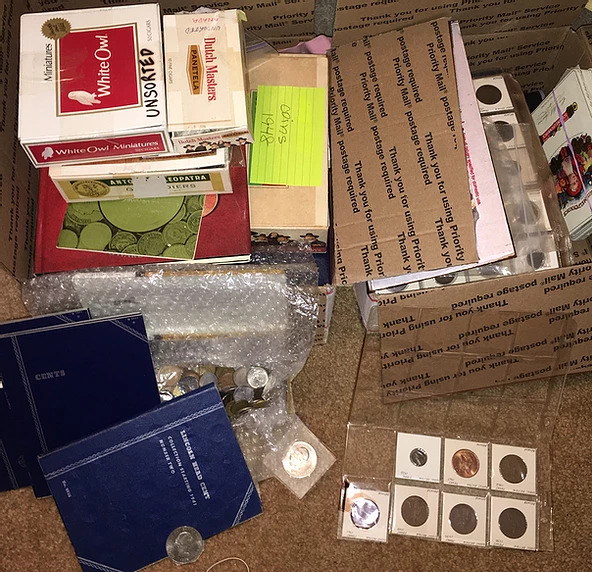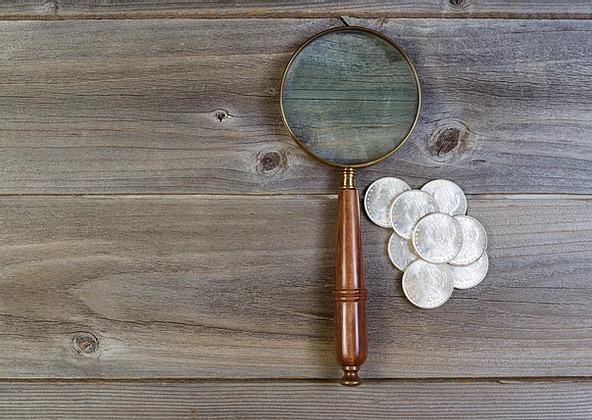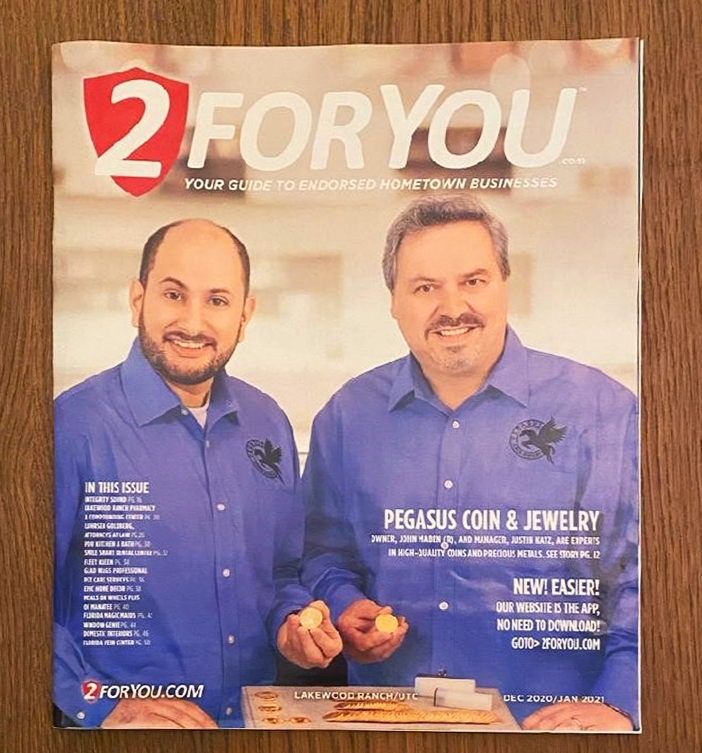Updated: Jun 28
A basic guide for people who are not coin enthusiasts but have a coin or collection
Some people are lifelong students of numismatics. Other people don’t know what the heck that word means without help from Google. This blog post is intended to provide some basic guidelines for the second group and other non-experts.

Whether they have casually picked up interesting coins over the years and put them in a jar, or they have inherited a collection, people who are not coin experts sometimes find themselves wondering how to find out if any of their coins are worth more than face value, if that (try spending a 1934 5 Reichsmark coin at Walmart and see what happens) and how to turn a coin or collection into spendable cash.
Two main avenues to revenue
The two main ways to sell coins are 1 — a direct sale to a coin dealer and 2 — a sale via an auction house or an online service such as eBay.
Either way, it’s important to have some idea of what you have and some general idea of what it might be worth. On the value question, you probably don’t have hugely valuable, headline-making rare coins, but some of them could be worth a few hundred dollars — and that’s worth some effort.
Unless you have very early (Colonial times early) U.S. coins or some that are gold, the major auction houses are unlikely to express serious interest. Most of your coins also are in what collectors call “circulated” condition, which means they have been used to some degree for their intended purpose. Condition is a very important aspect of value, with coins that are in uncirculated condition — never used and exhibiting no “wear” — worth a whole lot more.
The grading industry
Condition is so important to coin values that a small industry exists for judging them. Third-party grading companies such as Numismatic Guaranty Corporation (fun facts: NGC is headquartered in Lakewood Ranch and Pegasus owner John Maben was a vice president and grading finalizer there for eight years) and Professional Coin Grading Service hire experts to evaluate the condition of coins. The companies then sonically seal the coins in tamper-evident, high-quality plastic holders with a unique certification number, and other security features. The condition of the coin, expressed as a grade, is shown prominently on a label in the holder above the coin.
(Grades are stated on the 70-point Sheldon scale, with larger numbers indicating better conditions.)
But the cost of grading a coin generally starts at $25, plus shipping. Although professional grading gives buyers confidence, which usually translates into higher selling prices, how do you know if a coin is worth grading?
You can research the approximate value of a coin with online resources, among them those provided by the publication known as the Greysheet or the grading companies PCGS and NGC (under the Resources link).
Or you can establish a relationship with a local, established, reputable coin dealer, who can advise you on which if any coins could be submitted to one of the third-party grading companies.

The local coin dealer option
To many, working with a local coin dealer is the best choice (and this is a Pegasus blog post — we believe in what we do!)
Working with a local dealer, combined with online research on potential prices and reputations, is a great combination. The most important aspect of choosing who to sell to is trusting the knowledge and honesty of the person or business. Local dealers have sometimes been in the industry for years and know that one unhappy customer can hurt their reputations.
The coin collecting hobby and ancillary businesses are a small community. Word of sharp dealing or big mistakes gets around fast, and online reviews are readily available. Like any business, you can check to see if they are members in good standing of trade groups, such as the American Numismatic Association and the Better Business Bureau.
Working with a local dealer saves the cost and risk of shipping. A collection you’ve inherited is pretty heavy and bulky, and you can insure shipments but it’s not going to replace your family collection or irreplaceable coin.
Direct sales can be made with eBay and Craigslist, but that takes more time and effort than selling to a local dealer. And fraudsters have been known to target sellers of such items. Still, many professional collectors commonly buy and sell on eBay. It is a viable choice for experts.
Working with a local dealer in a direct sale usually is quick.

The auction and online sales options
Auctions — all of which are online-only at the moment due to Covid-19 — and online direct sales have the advantage of reaching more potential buyers. It only takes one bidder/shopper who is smitten with a particular coin or who needs it to complete their collection.
These methods allow the market to determine the price, which can be good or bad for the seller, although sellers can set a minimum acceptable bid and reject offers that are too low. These methods also involve fees to the online sales service or auction house, photographing the coins and submitting or uploading the images, and time waiting for a buyer to appear or an auction to be held. Typically, these sales routes involve waiting 45 to 60 days to receive the proceeds after the coin is actually sold.
If you are selling online, you have to know what you are selling. You need to be able to describe it accurately — Do you know a small cent from a large one? Do you know that cents aren’t all made of copper and when the U.S. mints stopped striking coins of mostly silver? And you need to have some idea what a good price for the coin would be.
In addition, we refer to single coins because that’s what online sales and auctions deal with. You can’t take a picture of a pile of folders and cigar boxes and say “What am I bid?” Auction houses will take on an entire collection, but they are typically very choosey compared with your local dealer, who would be more inclined to buy everything, if possible.
Do you have experience with this situation? What are your tips for beginners who have a coin or collection to sell? Let us know via email at pegavault@outlook.com.





